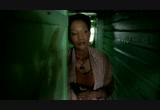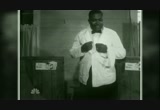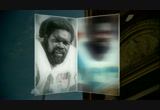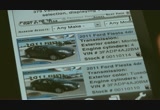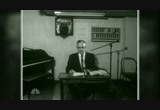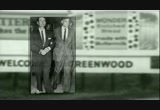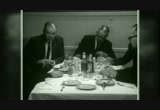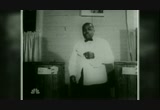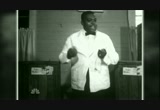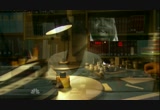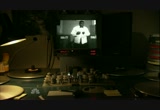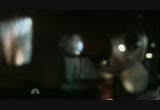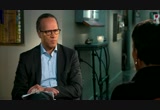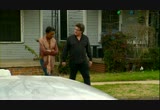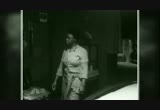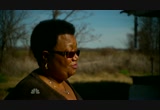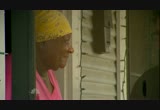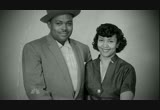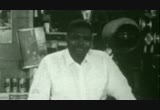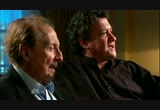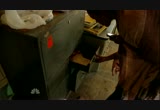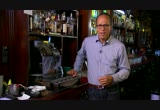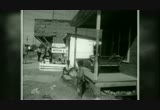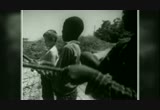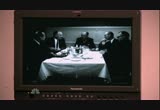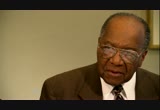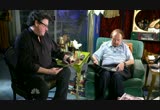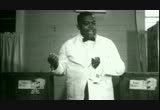tv Dateline NBC NBC November 11, 2012 10:00pm-11:00pm PST
10:00 pm
sometimes isn't life there are magical moments and it's time to stand up for what you believe in. >> if you searched your family's roots, what would you find? she set out to solve a mystery and found a hero. >> to think that i was related to someone that had done something profound. >> he suggested booker was somewhat of a civil rights icon. >> yes. >> a family secret, lost on a forgotten piece of film. >> night after night i lay down and dream about what i went through. i don't want my children to go through it. >> explosive then. haunting now. >> i said they could come and kill you. he says i want to be heard. >> raw words with great risk and great power to change. >> my heart broke for him. i didn't realize how much jeopardy he was putting himself in. >> tonight, a journey back in time to unlock a mystery and
10:01 pm
uncover the truth. >> if we're willing to take a chance, take a risk, then we can all make a difference. >> finding booker's place. welcome to "dateline," everyone, i'm lester holt. what do you know about your ancestors? a lot of us may not know much before our grandparents. the young woman in tonight's story didn't even know that. she started a search and crossed paths with a hollywood producer who was on a mission of his own. their journey took them to the deep south at a violent time during the battle for civil rights. on an old film, an nbc documentary in fact, they uncovered an explosive family secret. now keep in mind as you watch, that film is almost 50 years old, and some of the words spoken openly back then we find offensive today. the mississippi delta is nearly
10:02 pm
2,000 miles from the hollywood hills where ray grew up and now works as a filmmaker. it's a lifetime away from the phoenix neighborhood where yvette johnson is raising her boys, and yet a year ago, these two strangers, both bent on unraveling personal family mysteries, discovered they shared a unique bond. >> living now in greenwood -- >> it was a bond rooted in a 1966 nbc news documentary about race relations in mississippi. >> the people in other sections of the country are thoroughly convinced that we are prejudiced against colored people on account of the color of their skin. >> reporter: the unvarnished views expressed by white mississippians who felt their life was under attack sounds shocking today. >> i feel there was a racist effort. i am so proud of being them,
10:03 pm
they are what got made them. i am proud of being white because i am white because my parents practiced segregation. >> reporter: the man behind the camera was ray's father, frank, and the unlikely hero of that film was yvette's grandfather, a 40-year-old waiter, by the name of booker wright. this is a story about what booker said, the price he paid for saying it and the quest to find the truth contained in a flickering snippet of film. >> to think that i was related to someone who had done something profound was exciting. >> reporter: yvette johnson's journey back to the mississippi of 1965 began with the birth of her second son. >> it was the summer of 2007. my youngest son was just a few months old. i was wrestling with some issues with family, just feeling kind of disconnected.
10:04 pm
and i wanted to understand more about my family. >> reporter: yvette's parents grew up in greenwood, mississippi, on the hard traveled side of the tracks. >> my mother had a garden and that was their primary source of food. i knew that my dad grew up on a plantation. >> reporter: yvette might have grown up poor too, if not for a stroke of good fortune. her father, leroy jones, was a football phenom. when yvette was 2, he signed a professional contract with the san diego chargers and moved the family to southern california. >> when your mom and dad made the move to california, did they pretty much leave greenwood in the rear view mirror? >> i think they did. they didn't really look back. we weren't really a family that told lots of family stories. we weren't really connected to extended family because we lived so far away. >> reporter: unlike her parents, yvette grew up affluent,
10:05 pm
privileged and in the company of suburban white kids. disconnected from blacks of her own age, yvette said when she got to high school, she knew little about the african-american experience. >> people see you're black and immediately have certain expectations of how you think and culturally. did you struggle at all? >> i loved phil collins and aerosmith and they listened to rap. i had a hard time sort of finding my niche. >> reporter: yvette wanted her children to be better with black culture and so she turned to books. >> i read an autobiography about his life as a slave and it really took me aback. i hadn't grasped just the level of fear and humiliation for blacks during that time. it sort of began to occur to me that maybe some of the things i was seeing in my own family and some of the social issues facing african-americans today maybe were influenced by some of the
10:06 pm
things that happened during slave times. >> reporter: that was good background, but it was a writing assignment for a family history class she was taking that changed her life. >> the assignment was actually just to interview someone who was over the age of 60. they couldn't be your parents. >> you didn't have a lot to start with, did you? >> i didn't, no. but i have a fantastic aunt vera who loves to tell stories. i called her one afternoon and just asked her a thousand questions and she shared her whole life with me. but she also shared with me the story of her father and what she knew of him. >> reporter: on vera's father, yvette's grandfather was this man, booker wright. >> there was a different shift in her tone when she talked about booker wright. i mean it just -- it was like a seed was planted. we hung up the phone and i knew i just wanted to know more about him. >> reporter: there didn't seem to be much to know besides the
10:07 pm
bare bone facts of his life in the rigidly segregated south. according to aunt vera, booker was born on a plantation and never learned to read or write. by 14 he had become a waiter at lusco's, a whites-only restaurant in greenwood. later booker opened his own cafe on the black side of town, which according to aunt vera, was quite popular. >> where did you go from there? >> i found an article, a piece of oral history, that was written up by historians at ole miss, and it was about lusco's restaurant. they mentioned booker's place and booker wright. >> wait, this is an article about southern cuisine. >> it was about lusco's. >> about the restaurant. >> right. >> it was when she followed up with one of those historians that she became convinced she was on to something. >> i said hi, i'm booker wright's granddaughter. i understand that you might know a little bit about him.
10:08 pm
and he acted like he, you know, found some sort of a dignitary. >> he suggested that booker was kind of a bit of a civil rights icon? >> yes. >> at least locally? >> yes. >> reporter: the historian told yvette that her grandfather had once said something controversial about civil rights on tv in the mid-'60s, but the historian new little else. >> i thought it was like the 5:00 news. just like in between the weather and, you know, someone's house getting burned down that they stopped this black guy on the street. >> i'm assuming you started googling trying to find this. >> yes. >> nothing? >> nothing. i couldn't find anything. i started to think that maybe it was not real, maybe it wasn't true. maybe this guy was wrong, was mistaken. >> reporter: there was no mistake. the footage she was looking for was lying in this man's study in los angeles. that's where ray found it and began his own time traveling
10:09 pm
journey. back to greenwood, mississippi, 1965. and just what was on that forgotten piece of footage? >> the meaner the man be, the more you smile. although you're crying on the inside. >> reporter: the words of booker wright. >> i don't want my children to have to go through this. >> reporter: when "finding
10:12 pm
10:13 pm
the man speaking those words at the time that he did was risking his life to be heard and to awaken the country to a bitter truth. >> i told a man that we mistreated him -- >> ray de felitta cannot remember a time when these flickering black and while images of mississippi were not a part of his life. >> the communists are using the beat nicks, the homosexuals to stir up trouble among peaceful god-fearing people oft south. >> images of a segregated society where a white plantation manager like this one thought nothing of barging into the homes of his black tenants. >> i never knee died you anything. >> no. >> the images all come from one of the documentaries ray's father frank de felitta produced, wrote, and directed for nbc news. >> tell me what your knowledge of this film was. you were a little kid when your father went off on this assignment to mississippi.
10:14 pm
>> yeah. i was two or three years old and didn't know anything about my dad's work until years later. and i remember when we used to screen the films at home in black and white. it's like another world. >> the documentary titled "mississippi: a self portrait" was shot in the spring of 1965. less than a year after the murders of three civil rights workers who'd been helping mississippi blacks register to vote. >> it made headlines up north. and we all knew about it. >> frank de felitta is in his 90s now. but 47 years after he last set foot in mississippi, his memories are still sharp. >> the whole idea of the mississippi picture was not to do the story of black angst. we know that. >> you wanted to see it through the white person's point of view. >> exactly.
10:15 pm
>> frank knew it would be a dangerous undertaking. nearly 40 black churches had been burned to the ground in mississippi the previous summer. and the delta cotton town of greenwood where frank shot much of his film had seen plenty of trouble. ten years earlier, emmitt till, a 14-year-old visiting from chicago had been lynched for whistling at a white woman. and greenwood was home to byron de la beckwith. a man who had been tried twice for the murder of edgars. >> the fbi scared me. yeah. they told me we think you're crazy. you're not going to be welcomed. and we can't help you. >> did the fbi give you someone to call? >> yes. well, they said all we can give you are some phone numbers. all throughout mississippi we have agents. nobody knows of them. if they find out, they'll kill these people.
10:16 pm
>> in 1965 when frank de felitta and his crew came to greenwood, mississippi, the color line was pretty obvious. it was the railroad tracks. blacks lived on that side. whites over here. >> wherever people gather in mississippi -- >> while the whites frank encountered were gracious, he said most defended the state's tradition of racial segregation. >> it's difficult for me to understand why the entire country is so intent on integrating our schools. >> gather these community leaders together and they were quite candid with you. >> yeah. >> when a plantation owner had a colored person who had worked for him for a number of years, had gotten too old for a day in the field, he didn't fire him. he left him with a home. he gave him food. he gave him clothes. and he gave him a place to live his life out in peace and contentment. >> that's a very extraordinary scene because you see, in fact, the true believers believed that they're actually collaborating
10:17 pm
with and helping their black brethren. >> they thought the two races were living in harmony. >> right. >> the colored people are very happy. extremely happy in mississippi and i think they feel just as warmly toward us. >> that's a fact. >> do you know anybody that disagrees with that? >> it is at this point that frank's film and our story converge on this man. yvette johnson's grandfather. >> we don't have a written menu. i'll be glad to tell you what they're going to serve tonight. >> frank never intended to interview blacks for his film about white attitudes in mississippi. but after hearing booker wright's rhythmic menu, he couldn't resist. >> we have fresh shrimp cocktail, fresh oysters on the half shell, fried ousters, stewed oyster. >> almost like a song, a poem about all the foods.
10:18 pm
>> best food in the world is served at lusco's. >> frank says lusco's wouldn't allow him to film booker's bit there. so he arranged to meet him the next day at booker's own restaurant. >> we went, set up the camera. i said okay, action. and he told this wonderful litany of the menu. but then he did something else. >> without warning, booker wright began speaking candidly and in language that viewers then and now might find offensive. >> customers, disrespecting me. some call me booker. some call me john. some call me jim. some call me nigger. all of that hurts, but you have to smile. >> he basically says he's smiling through the pain of being humiliated every night by
10:19 pm
his customers. >> yes. >> the meaner the man be, the more you smile. although you're crying on the inside. what else can i do? sometimes they'll tip you. sometimes they'll say i'm not going to tip that nigger. yes, sir, thank you. what'd you say? thank you again. don't talk to him like that. that's my nigger. i'm trying to make a living. >> you didn't see it coming. you thought you were filming the happy black. >> a happy black, right. >> night after night i lay down and i dream about what i have to go through. i don't want my children to go through that. i want them to be able to get a job and be qualified. >> i went there to photograph a minstrel show and i stayed there to hear a man talking about his life and what his dreams are. and it was so moving. >> tell that nigger to hurry up with that coffee. i'm on my way. >> well, i cried.
10:20 pm
>> remember you have to keep that smile. >> i said to him, look. this is brave of you to say that and, okay, but, i said i want you to know that this movie, if it ever airs, will go all over the country. throughout the south. it'll be in mississippi and greenwood where you live. they'll see it. i can't account for that. that they could come and kill you. he said, then so be it. i want to be heard. i said if you change your mind you can call me and say don't show it. >> you were that concerned for his safety. >> of course. >> a year later, frank's documentary aired on nbc. outside the south the show got rave reviews. >> if a documentary can be called a sleeper, this is it. it's easily the best show of its kind ever done on race relations in the deep south.
10:21 pm
>> but in greenwood, reaction to the film was swift and harsh. and booker would bear the brunt of it. >> i've always felt a sense of responsibility, but i can't do it over. i have to live with what's happened. >> what happened to booker wright and why was a story frank would never get to finish. that job would fall to his son ray and booker's granddaughter yvette. and lead them both back to greenwood, mississippi, in a search for answers. coming up -- >> i experienced sort of a whirlwind of emotions. >> what did happen to booker wright? >> i didn't realize how much jeopardy he was putting himself in by saying those things. >> when "dateline" continues
10:22 pm
10:23 pm
10:25 pm
booker wright and frank de felitta were only together for a short time. but this moment preserved on film had a lasting impact on both of their lives. >> night after night i lay down and i dream about what i had to go through. i don't want my children to have to go through this. >> because of complaints from white customers, booker chose to leave lusco's shortly after the film aired. his own restaurant was reportedly fire bombed, but that wasn't the worst of it. >> they beat him something terrible. he was wounded all over his body. they didn't kill him. that to me was amazing that they didn't kill him. i called him. i got him in the hospital. i said i'm coming down.
10:26 pm
i'd like to see you. he said no, no. i've done enough for you. i don't want to see you ever again. i said what's wrong? i'm a friend. he said it's okay. you're not really allowed to come and see me. he said that would just add too much fire to the whole thing. >> that was the last time frank ever spoke to booker. a river of time carried their lives in different directions after that. frank left nbc and moved his family to l.a. where he dabbled in feature films and started a new career as a novelist. but frank says he never forgot booker wright or the consequences booker suffered as a result of his appearance in frank's film. >> i should have used better sense, probably, and eliminated it. >> which is where frank's son comes in. ray makes his living writing and directing feature films such as 2009's critically acclaimed "city island."
10:27 pm
but he also has a passion for preserving documentaries. particularly his father's. >> the loss of documentary film if it's not preserved is the most, you know, is the saddest loss because it's history. how do you preserve these? in the case of my dad's films, i thought we had the only copies of them. i was determined they had to be preserved. first i donated them to the museum of broadcasting. >> but ray didn't feel that was enough. he wanted his father's work to be seen and appreciated by new audiences. so he posted the mississippi film on his blog where anyone could watch it. >> and almost instantly, my producing partner david zelerford said this is an extraordinary movie and who is this guy, booker wright? >> sitting in his office, he said he immediately saw a potential for a new film. one that would finish booker's story. >> he mentions his children in
10:28 pm
the film, and i said to raymond, i said we have to go find out what happened with booker and his children. >> we started doing research on who booker really was. and we found that there was an article written by a historian at ole miss where he mentioned booker wright. >> as luck would have it, it was the same historian that yvette johnson had spoken to a few years earlier. soon after speaking to that historian, zelerford was in touch with yvette in phoenix. >> when i got home i had voice mails and e-mails saying someone says that he had a piece of footage that your grandfather appeared in, so of course i knew what it had to be. >> and did they send you the footage? >> yeah. >> for years the very existence of this footage had been little more than a rumor to yvette. now with her husband videotaping her first viewing of it, yvette realized that booker's tv appearance had been much more than a short angry snippet on the local news. >> you remember you have to keep that smile. >> oh, my god.
10:29 pm
>> i experienced sort of a whirlwind of emotions. i mean, my heart broke for him as i watched it and he talked about just that daily humiliation. part of me wanted to reach back and comfort him. >> could you project yourself back to 1965 and recognize the jeopardy he was putting himself in by saying the things he was in that environment? >> when i first saw it, no. because i still didn't really understand 1965 greenwood. i didn't realize how much jeopardy he was putting himself in by saying those things. >> but that was about to change. in a matter of weeks, yvette johnson and ray de felitta were on their way to mississippi with a film crew in tow. both were about to have a rendezvous with history. >> i developed a very strong desire to know my grandfather, to sort of find him to find his spirit, his essence. >> we realized if that's the
10:30 pm
journey in booker, my journey in trying to put my father's movies out there again so people could see the history that he had documented all came together, and we said let's go tell the story. coming up, what would they find next? >> amazing things happened that you never foresaw. >> when "finding booker's place" continues. [ female announcer ] welcome, one and all,
10:32 pm
to a tastier festive feast. so much to sip and savor. a feeding frenzy, to say the least. a turkey from safeway will have everyone raving. there's fresh, natural, frozen, whatever your craving. spend $25, and get a frozen safeway turkey for 59 cents a pound. or spend $25, and a frozen butterball turkey, just 99 cents a pound. so raise your glass, pull up a chair, grab a plate. this tastier thanksgiving is well worth the wait. safeway. ingredients for life.
10:34 pm
yvette johnson may have been born in greenwood, mississippi, but when she returned to research her grandfather's life, she came as a stranger. >> we visited once when i was eight. i came back once when i was 11. it just seemed small, far away, maybe a little outdated, backwards. >> tell me about this house. >> for ray de felitta, this was his first trip to mississippi. and like yvette, it was the unfinished story of booker wright that lured him here. following in his father's footsteps. >> ray, what was it like for you to suddenly find yourself in these same towns, in the same streets. >> it was great to actually envision my dad in 1965 there and i'm actually sitting in the same restaurant, i'm wandering with a film crew in the same town. >> before long, ray and his crew were bumping into people who'd
10:35 pm
actually appeared in his father's film. people like iola mccoy whom he met while she was serving the crew lunch one day. >> that's part of the magic of film making. amazing things happen that you never foresaw. >> iola was a young mother living on a plantation in 1965 when the plantation's manager abruptly let frank de felitta's crew into her mother's house. >> come on out here. >> the manager wanted to show frank how well his black tenant farmers lived and how well he treated them. the manager said he took care of his hard-working tenants like this one, who was going to get indoor plumbing. >> going to put a bathroom in here. going to put them in all the houses that are like this. >> but tenants who the manager decided didn't work hard enough or take care of their cabins received only scorn. iola's father was one of those. >> i want to show you the
10:36 pm
contrast between good tenants and one that doesn't take care of his family. he won't even put a nail in anything. you see he didn't even put a nail in that. he let it fall down. >> when the manager traipsed into her mother's cabin with a film crew, iola sat stonily staring ahead while her daughter slept. >> he walked on in. i guess my mother knew she was coming. i knew i didn't. >> that cabin still stands. and though iola mccoy told us she doesn't remember much about that day, she definitely remembers the plantation manager. >> i just remember he was a scruffy man. he, you know, bossy. >> and we never did get the indoor toilet. >> vera, iola's daughter, was just a baby then. >> to see me being calm like i was well taken care of and i just thought i was the most
10:37 pm
adorable thing. >> vera says that though she grew up poor, she never felt deprived, so it angers her to see the way the plantation manager talked about her grandfather. >> he was using your grand dad as a bad example. >> yes. and he was a good man. he took care of us. we never went hungry. we always had clothing, shelter. everybody don't progress at the same rate as others. it just took us a little longer to get where we needed to get to. >> yvette's journey involved talking to anybody who could take her deeper into the story of her grandfather, booker wright. she found people who had been to his restaurant. iola mccoy was one of those. >> he was a good, fun guy. i enjoyed him. he was a businessman though. if you weren't buying, you had to leave.
10:38 pm
you couldn't sit at his table. >> 98% of the people you speak to about him will talk about his joy. that he was just bigger than life. he was fun to be around. >> did they see him -- was he the activist type or was this out of character? >> no. he had found a balance between being successful as a waiter in the white community, but he also was very well respected in the black community because he had his own restaurant. >> but all of their research failed to solve the biggest mystery of all. yvette and ray wondered why someone like booker wright, a father and a smart businessman, would risk everything by bearing his soul to a stranger with a camera. >> i didn't get the impression from anyone that they saw it coming. >> he wasn't an agitator. >> no. and yet i think given where he lived and in the time he lived, it was sort of like a powder keg. it was going to explode and booker was sitting in the middle of it. >> i have a feeling that he spotted me. he saw what i was doing, and he arranged to become a part of it.
10:39 pm
>> you were the vehicle on something that he really wanted to get out. >> exactly. i had that feeling. >> ray and yvette both hoped they would find a clue to booker's motivation. and perhaps they thought they would find it here in the ruin that once was booker's place. the place where it all began. coming up -- >> i always feel emotional here. >> uncovering the rest of booker's story. a dramatic chapter still to come. >> do you think that booker was killed as a result of what he said? when "dateline" continues. medications?
10:40 pm
i don't know. last immunization shots? really? honey, what's my blood pressure medicine called? one time i took something and i blew up like a puffer fish. i'm probably allergic to that. at kaiser permanente, your medical information is available to you and your doctors. quickly. securely. no guesswork required. better information. better care. kaiserpermanente. thrive.
10:42 pm
10:43 pm
see, going green can save you green the more you know. the words were heartfelt and laced with pain. >> the meaner the man be, the more you smile. although you're crying on the inside. >> but in 1966, those words had the incendiary impact in of a molotov cocktail in certain sections of greenwood, mississippi. >> i don't want my children to go through what i did. >> that film was not seen at the time by a lot of the local black people. a lot of them did not own televisions. >> the impact of what he said was felt in the white community. because so many whites knew him. so many whites felt they had friendship with him. and to hear him say no, this isn't friendship. this is humiliation for me. it was a wake-up call.
10:44 pm
>> allen wood is one of those whites who knew and liked booker wright. >> he was a great personality. good man. >> wood says he came to know booker when as a child a black employee at his father's car dealership took him to booker's place. >> booker would sell an iced tea glass of whiskey for 25 cents, i believe it was, and it was rotten. and i didn't drink any of it. >> wood says his father sold booker cars, and that booker frequently served his family and friends whenever they ate at the restaurant where booker was a waiter. >> we used to go to lusco's all the time. i really liked him. >> then came that sunday evening in may, 1966, when the happy-go-lucky black man allen wood had known for most of his life suddenly appeared on his tv set saying he wasn't happy. >> night after night i lay down and i dream about what i had to
10:45 pm
go through. i don't want my children to have to go through it. >> that's the first time i realized that booker felt that way. after the show, a lot of people were pretty upset. he would have had to have known that it would -- it was not going to go over well. >> many whites in greenwood shunned booker after that. but on the black side of the tracks, booker's monologue became the stuff of legend. >> people who i thought would have been too young to know him knew him by reputation. it'd become almost like folklore in greenwood. >> always learn to smile. the meaner the man be, the more you smile. >> incredibly ray and yvette discovered the spot where booker had uttered those words still stood. battered, boarded up, and empty. >> it's like there was maybe some -- like a vinyl floor. >> for yvette johnson, this ruin was as close as she'd ever get to her grandfather.
10:46 pm
but if she expected to feel his spirit here amid the cob webs and peeling paint, she was disappointed. >> no photographs. >> she recorded her impressions on a small tape recorder for a book she was writing. >> i think i feel sad. because if there were any place i'd feel him, it would be here. and i don't feel him here. i wish i'd have seen it in its heyday. i know how special this place was to him. it's so abandoned. >> no detail of her grandfather's life here was too small. so yvette tracked down the one person who'd known him best and was still living in greenwood. >> i sat down with honey wright, booker's companion for the better part of his life. and learned more about him, the man, his daily life. >> and could she tell you any more about what he said on tv? >> no. >> yvette says honey told her that booker rarely talked about his time in front of frank de felitta's camera and never spoke
10:47 pm
about the retaliation he suffered. >> he didn't tell anybody about getting beat up, did he? >> my mother -- when i told the story to her, she recalled a time when he had some bruises, that he gave a strange explanation for. but i think he was just a private man. >> booker did not report the beating to police. perhaps because a police officer was rumored to have been behind it. and yvette learned that the repercussions from what booker had said on tv did not stop with a beating. he was intimidated and humiliated even at his own restaurant. >> booker wright's half sister shared a story about a white police officer coming into booker's place one day when she was working there. walked back to the kitchen where they were cooking food and put his hand in a pot, pulled out some meat and stood in the kitchen and ate it while he's dripping juices on to the floor. then he turned and he left. didn't say anything to anyone.
10:48 pm
i just got the impression that he was known and hated by certain people on the police force. >> in 1973, booker wright's story took a tragic turn. late one saturday night a young black man named lloyd lewis cork walked into booker's place. according to witnesses, he took a seat next to two white men. an argument broke out and booker threw cork out of the bar. 20 minutes later, cork returned with a shotgun. he fired a blast through the door that fatally wounded booker as he stood near the cash register. cork was arrested, tried and convicted of murder. he was given a life sentence. although the shooting of booker wright came seven years after his appearance on nbc had seemed to be the result of an argument gone bad, yvette and ray aren't sure there wasn't more to it. >> booker wright became a big figure in a small place. i think there were people still upset with what he had done.
10:49 pm
>> do you think booker was killed as a result of what he said in that program? >> i don't know. there's that question that i have whether or not someone hired this kid to do what he did. >> you will not find booker wright's name in any history book. he led no marches, staged no sit-ins. and yet speaking out like he did on national television, this waiter signalled that change was now on the menu in mississippi. coming up -- >> some people say if booker came back, he'd be pissed. >> greenwood today. nearly a half century after booker wright took his stand, how much has changed? when "finding booker's place" continues.
10:53 pm
frank de felitta left mississippi in 1965 with the words of a liberal newspaper editor wring ringing in his ears. and this is how his documentary ended. >> i think it's good for us in the south to see what all you have just seen. i wish anyone who has seen this program could be alive 50 years from now and come back and see us again. you'll see some profound and largely hopeful changes. >> 47 years later, ray de felitta fulfilled that wish. and found that in greenwood at least, change is in the eye of the beholder. >> they're polarized. some people say see how much progress we've made. some people say if booker came back, he'd be pissed. in a sense, both sides are right. >> the loss of jobs in agriculture and manufacturing and forced a migration out of the delta. in greenwood, black poverty and
10:54 pm
unemployment rates are high. and years of court-ordered integration didn't really work. greenwood's public schools are now overwhelmingly black. private schools mostly white. still ray says he did find signs of hopeful change. >> what has changed that's most important, i think, is attitude. economically, things are still kind of a mess. the town doesn't look as good as it did 40 or 50 years ago either. not enough progress has been made, but the attitude is different. >> vera mccoy, the sleeping baby in the original film seems to embody changes few could have imagined in 1965. >> i have a lot of white friends and i have a lot of black friends. we socialize together. my interaction with white people for the most part has been positive. >> vera is a grandmother herself now and just a few credits shy of getting her masters degree in social work.
10:55 pm
>> overall people aren't looking at race, the color of your skin anymore. >> what color are they looking at? >> green. green now, because money makes the world go round. they're not going to be rude to you. they need your money to survive. >> that's a concept 1965's leaders would have appreciated. though they probably wouldn't recognize greenwood today. >> the average colored child is not going to keep up with the average white child in an integrated school. >> we showed the clip of that round table to today's leadership. >> it's appalling to think at one time we were in that situation. >> there's a bit of a shock factor for almost anyone who watches today. >> my heart actually thumped a little bit harder watching that. that was my first time seeing it. >> the only part i could say is still resonant today is there is this sometimes patronizing, condescending attitude where whites feel like they know what
10:56 pm
blacks think and blacks think they know what whites think and often they're way off. >> today the mayor is a woman. the town's most powerful politician is black. and the business leadership is diverse. discussion nowadays is less likely to turn on race relations than on ways to lure tourists to town. >> i think we're owning our history. and we're living up to that to make it better. don't you think? >> i agree with that. we're working on tourism. we don't have time to be pointing out racism. >> tourists looking for an authentic mississippi experience now pay for the privilege of sleeping in this collection of shacks on the outskirts of town known as the tallahatche flats. but unlike the old days, these shacks have been retro fitted with air conditioning and indoor plumbing. >> we see a lot of europeans that love to come over here and experience the blues. they love to go to the flats to
10:57 pm
get that rustic feel. >> no one knows that better than sylvester hoover. >> come back and see us. >> in addition to running his own grocery, sylvester also operates tours of significant blues and civil rights spots in the area. >> a lot of people are making money off it. i'm probably the only black doing it. >> this is one of the stops on sylvester's tour. it is what remains of the grocery store where emmitt till wolf whistled at a white woman. that night he was abducted from his bed, brutally murdered, and tossed into the river. the property is owned by one of the jurors that acquitted till's killers. authorities want to establish a memorial here, but can't because the owner reportedly has a seven-figure asking price. >> everybody trying to make money off the blues and civil rights. and a lot of those people gave
10:58 pm
us the blues but now they making money off the blues. it don't taste good to a lot of people, but they doing it. >> as for ray de felitta and yvette johnson, work on their film wrapped earlier this year. >> why he spoke that way in the film -- >> "booker's place: a mississippi story" premiered in april at the tribeca film festival. >> it was a great notice. >> beautiful. >> for frank and ray de felitta, it was a crowning collaboration between father and son on a film that has become a family heirloom. >> i couldn't be more delighted to have my swell kid here follow me in a movie and he did it. this job is fabulous. >> for yvette johnson, her quest to understand her family's origins had ended with much more. yvette had learned that her grandfather was no accidental activist who in an unguarded moment blurted out something provocative. instead she learned booker
10:59 pm
wright was just an ordinary man who in a moment of truth exhibited extraordinary courage. >> i think sometimes in life there are sort of these magical moments and you don't know when one is coming but you sort of know when you're in it. and it's the time to stand up for what you believe in and to express what matters to you. and if you don't seize the opportunity, i think you just -- you feel like you've compromised yourself. to me that's the biggest take away. >> night after night i lay down and i dream about what i had to go through. i don't want my children to have to go through this. >> i think if we just keep our eyes open and if we're willing to take a chance, to take a risk, then we can all make a difference. that's all for now. i'm lester holt. thanks for joining us.
282 Views
IN COLLECTIONS
KNTV (NBC) Television Archive
Television Archive  Television Archive News Search Service
Television Archive News Search Service 
Uploaded by TV Archive on

 Live Music Archive
Live Music Archive Librivox Free Audio
Librivox Free Audio Metropolitan Museum
Metropolitan Museum Cleveland Museum of Art
Cleveland Museum of Art Internet Arcade
Internet Arcade Console Living Room
Console Living Room Books to Borrow
Books to Borrow Open Library
Open Library TV News
TV News Understanding 9/11
Understanding 9/11